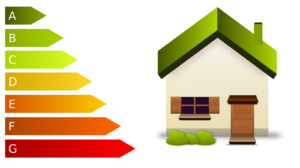 What is the difference between energy efficiency and energy saving?
What is the difference between energy efficiency and energy saving?
In general, these concepts are very often used as equivalent. However, in fact, energy efficiency is just one aspect of energy conservation.
Unlike energy saving (energy conservation), which is mainly aimed at reducing energy consumption, energy efficiency (the utility of energy consumption) is a useful, efficient energy consumption.
Speaking about energy efficiency, we mean not only “energy saving”, i.e. saving energy in everyday life. We are talking about the rational and conscious use of energy resources available to everyone, with a view to saving them carefully for the environment and our descendants.
Energy saving includes changes in people’s behavior, for example, switching off electrical appliances instead of leaving them in standby mode. Effective use of energy leads to savings, reduced payments for utility bills and environmental protection. As a result, energy consumption and greenhouse gas emissions are reduced.
Why is it important for everyone to apply energy efficiency principles at their own level?
One of the main tasks of all people on Earth is to preserve as much as possible the natural resources for descendants.
According to statistics, of all energy consumed in everyday life, 70% is spent on heating the premises, 15% of the energy is used for cooking, 10% of energy is consumed by household appliances and another 5% is spent on lighting. Of course, the figures are averaged and largely depend on the area of the house or apartment, the heating system, the stove, etc.
However, they give an understanding that the use of each, energy efficient equipment and instrumentation systems allows to achieve significant results with increased efficiency (efficiency) of the energy used. It means – to live, keeping the environment.
In practice, human compliance with the principles of energy efficiency means a reduction in payments for utilities.
How does energy efficiency affect the slowdown in climate change?
Energy efficiency and the use of alternative energy sources are the two main strategies of many countries to reduce gas emissions to the atmosphere. According to the UN, energy efficiency can affect this process faster and does not require such costs as the adaptation of “green” technologies, therefore it plays a big role in adjusting the current environmental situation.
Energy efficiency is closely related to the reduction in the amount of carbon dioxide per se. Representatives of the International Energy Agency (IEA) believe that the active use of energy-efficient technologies alone can reduce carbon dioxide emissions by 65% in the next 20 years.
What is the effect of the ubiquitous use of energy efficiency principles?
Compliance with the principles of energy efficiency allows us to use energy efficiently and save it. Thus, natural resources in general are used carefully and it becomes possible to store them.
How much can you save on energy efficiency?
On an international scale, energy efficiency can save hundreds of billions of dollars to business and private individuals. The British government company Carbon Trust estimated that businesses will be able to save up to 10% of electricity only through such simple measures as switching off the power of computers at night.
The International Energy Agency (IEA) argues that every dollar invested in energy efficiency will result in a $ 4 saving, and the project will fully pay off in about 4 years.
In the future, energy efficiency savings will only increase, as the price of energy carriers is constantly rising. Rising coal prices make energy efficiency particularly beneficial for coal-fired power plants and enterprises engaged in heavy industry.
Picture Credit: OpenClipart-Vectors
